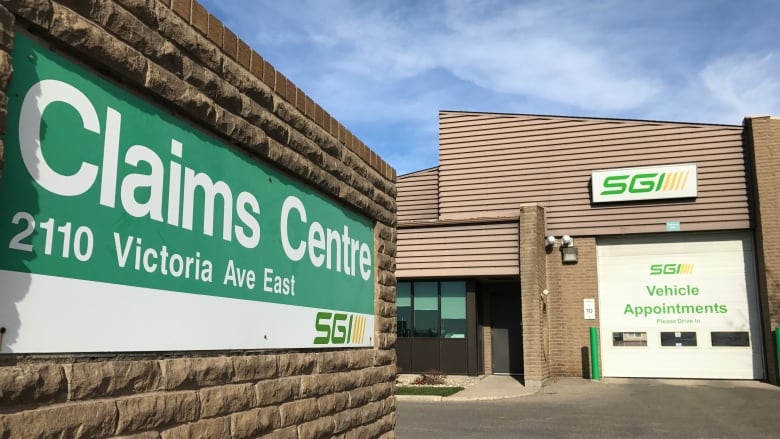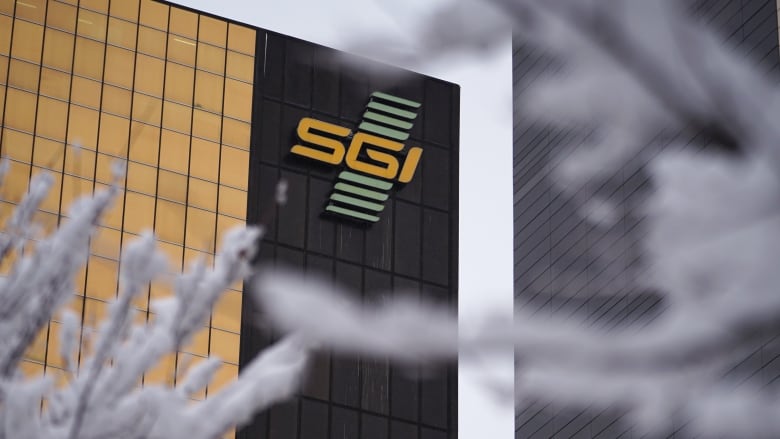SGI appeals process not fair, accountable for people injured in car accidents: ex-civil servant
Sask. government, SGI say they are working to improve, simplify appeals process

The former director of a program that helps people injured in car accidents appeal for more coverage from Saskatchewan Government Insurance (SGI) is raising concerns about what she calls a lack of fairness for appellants that she says drove her to resign from the justice ministry.
Robin Burlingham says she left her role as director of the SGI Appeal Advisor Program (AAP), where she worked for nearly four years, in June after repeatedly expressing her frustrations with what she called inadequate funding that caused cuts to services and little accountability for SGI.
The AAP was created as a pilot project in 2018 to advise people appealing the provincial insurer's decisions on no-fault injury claims at the independent Automotive Injury Appeal Commission (AIAC). Both the AAP and the AIAC are funded indirectly by SGI, through premiums collected from drivers and housed within the Ministry of Justice.
In a statement Friday, SGI said the funding arrangement is designed to keep the AAP "at arms length."
Burlingham, a lawyer who became the AAP's director of advisor services in 2022, told CBC News that budget constraints caused the two-person office to stop representing appellants in their hearings in January 2023, and instead offer only advice and information to people filing appeals.
"I worried that our office existed only to provide the appearance of helping people with their SGI appeals without offering anything of substance," Burlingham wrote in a public blog post on Monday.

Burlingham said thatwithout representation, hearings aren't an even playing field for appellants, who under the no-fault system don't receive large payouts to cover lawyer fees. SGI is represented by lawyers at hearings.
"When we're sending people into the hearings without a lawyer, it's unequal," Burlingham told CBC on Wednesday, noting that people who accessed the AAP's services were more likely to be successful than those who didn't.
The AAP's budgetin the 2022-23 fiscal year was just over $200,000, about one-fifth of the approximately $1-million budget of a similar office in Manitoba that employs 12 full-time employees, according to both province's most recent budgets.
A spokesperson for SGI said the two budgets cannot be compared "apples to apples" because the Manitoba office assists with mediations as well as appeals, and that up to 200 appeals per year are referred to that office, compared to less than 100 directed to the Saskatchewan office.
The Ministry of Justice did not directly answer questions from CBC News about whether AAP employees stopped representing appellants due to budget constraints or whether it shared Burlingham's concerns that the AAP's budget was inadequate. It said in a statement Friday that it and SGI are "are working together to ensure the ongoing effectiveness of this program and provide our customers with the support they need" and to "simplify the appeal process."
Both AAPjobs are currently vacant and the government is hiring for them, the statement said.
"We are making changes in a phased approach to avoid making the program more complex and to collect data along the way so we can make smart changes as the program evolves," it wrote.
Burlingham also raised concerns that while SGI pays medical experts to give independent opinions at hearings that typically support the insurer's position, appellants can't afford the same and their family doctors often don't have the time to do so when they are only paid a small stipend to appear. She saidthe AAP should be funded enough to pay for such assessments if warranted.
SGI saidit seeks expert opinions when it's not clear whether someone qualifies for coverage, including when there is an appeal and when there is not. Those opinions sometimes support coverage and sometimes don't, in which case they can end up as evidence if the individual appeals, it said.
"SGI has a duty to pay benefits to those who qualify under the program, but when a customer doesn't qualify, we also have a duty to ensure the premium dollars of Saskatchewan residents stay within the program and are available to others if and when they need it," the insurer said.

Burlingham saidthat while the province's no-fault system helps limit costly litigation, the lack of resources for appellants and long waits mean "there's very little recourse" against SGI's decisions or assurance it won't happen to someone else.
If SGI admits a mistake or an appellant wins a reinstatement of benefits, the insurer must pay the benefits owed, but "there's nothing really to compensate you for the stress that you had to go through,'" she said.
Data indicates that the majority of recent SGI appeals are unsuccessful. Of the 46 AIAC written decisions published since January 2023, nine were full or partial wins for the appellants.
On average it took 2.5 years for a complaint to be decided once filed with the AIAC, according to the Ministry of Justice's 2019-20 annual report. SGI said these delays are usually due to waiting for medical records as conditions evolve, or appellants being unprepared for hearings.
Resigned during suspension
Burlingham saidshe was disciplined and suspended for six weeks after writing an op-ed critical of SGI's policy on concussions in the Saskatoon StarPhoenix and a now-deleted blog post in March, and then resigned during her suspension. The ministry said Friday that it could not comment on individuals' employment histories.
"I was uncomfortable being in the position of telling clients that they should not bother fighting their appeals because they would lose, and that I happened to be getting paid (indirectly) by SGI to tell them that," she wrote in her Monday blog.
Burlingham saidthe province should immediately boost funding for the appeal advisor program and make it permanent, rather than a year-by-year pilot.
She also suggested looking to Alberta, where the province monitors independent medical consultants tasked with providing opinions in similar cases, to ensure experts being paid by insurers and appellants are giving balanced opinions.
Burlingham said she wanted to speak out to show others frustrated with the SGI appeals process they are not alone.
"I think it is a good time to have a little bit of additional public pressure on that to ensure that this time they're going to treat it a bit more seriously and invest in it as it should be invested in," she said.












_(720p).jpg)


 OFFICIAL HD MUSIC VIDEO.jpg)
.jpg)



























































































